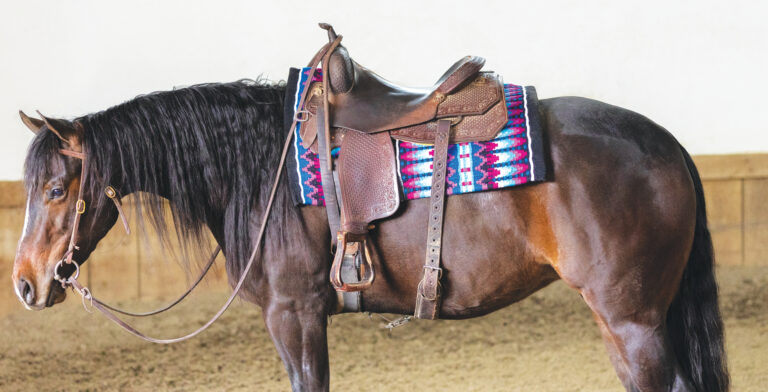Your child’s first experiences riding and competing can be made even more fulfilling by managing their—and your own—expectations.
Realistic expectations set everyone up for success, whether you’re the rider, the supporter, or the coach/trainer. In our lesson program, we take many riders to their first shows and continue with them through the upper echelons of horse-showing. We also have hobby riders whom we help progress toward their own aspirations. Success movement up the riding ranks depends on us all being on the same page and understanding what each person and their horse are capable of. Here, I’ll explain how you can help your child achieve as a rider—and you be a positive influence as a parent—with attainable goals and realistic expectations.

Conduct Strategy Meetings
Communication is key to success, and planning regular meetings keeps everyone on the same page. We meet annually with each rider to set one- and two-year goals. The one-year goals are more immediate: show at my first competition, score a 70 for the first time in reining, make it over trail poles without a penalty. This gives us the opportunity to discuss where your rider is at in their progress and point out positive room for growth. Semi-regular check-ins throughout the year keep you on track.
[Read: Enjoy the Ride!]
Recognize Limitations
Your rider’s boundaries in terms of time, ability, and resources aren’t negative, and you should consider them when setting expectations. I look at it as a hobby rider versus an athlete rider. A hobby rider is there for fun, friendship, and to enjoy everything about the horse. An athlete rider experiences those things, too, but is committed to a rigorous training schedule, critiques of riding videos, learning at a fast pace, and competing at a higher level, which can incur greater financial commitment. Both riders have a place in the barn, but the hobby rider can’t compare their experience from basic lessons to competing on a national level.
Additionally, keep in mind your horse’s abilities and limitations. A rider is less likely to achieve a 70 on a lesson horse that’s not schooled up the same as a training horse. The caliber of horse your child rides must be part of the equation when setting expectations.
Trust the Process
Keep from setting up your child for disappointment by managing your own expectations, too. I find that for most parents, this means finding a coach/trainer whom they trust to be the leader in the process. When you have confidence in your child’s coach, you can see that it’s about much more than just riding. Your child will have success and failure, which helps them learn to handle it as adults. He or she will gain communication skills, responsibilities, accountability, and a desire to achieve that’s unlike a child who doesn’t have the opportunity to ride. This happens with teamwork from the parents and the coach/trainer. The adults can work together to help the child’s goals and aspirations stay on track.







